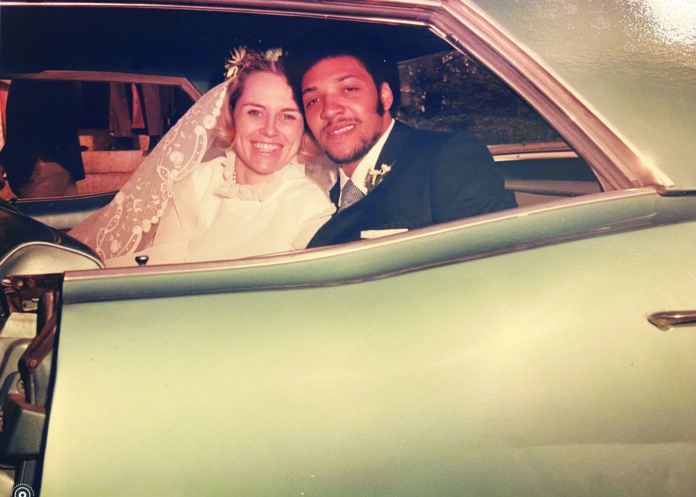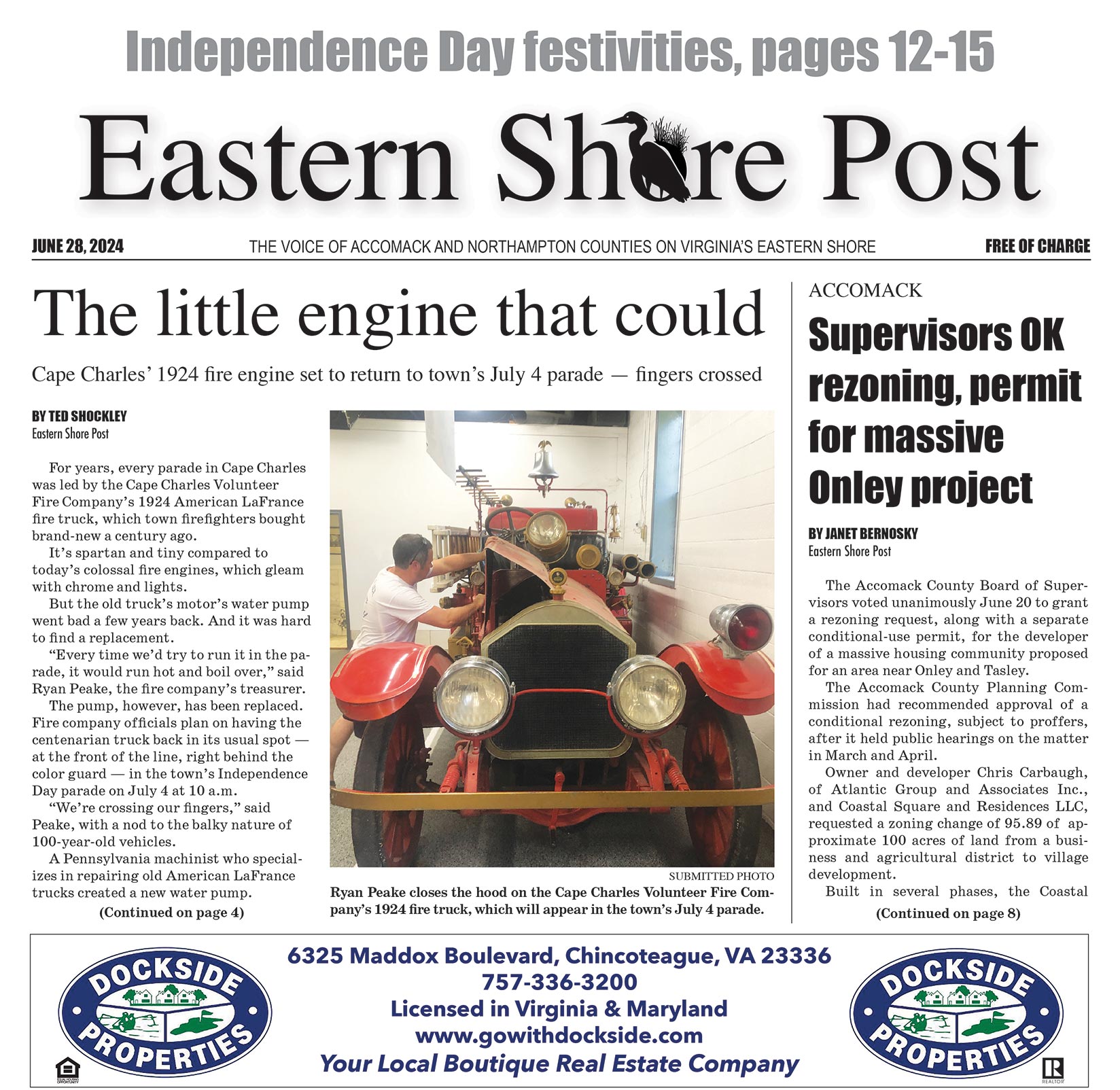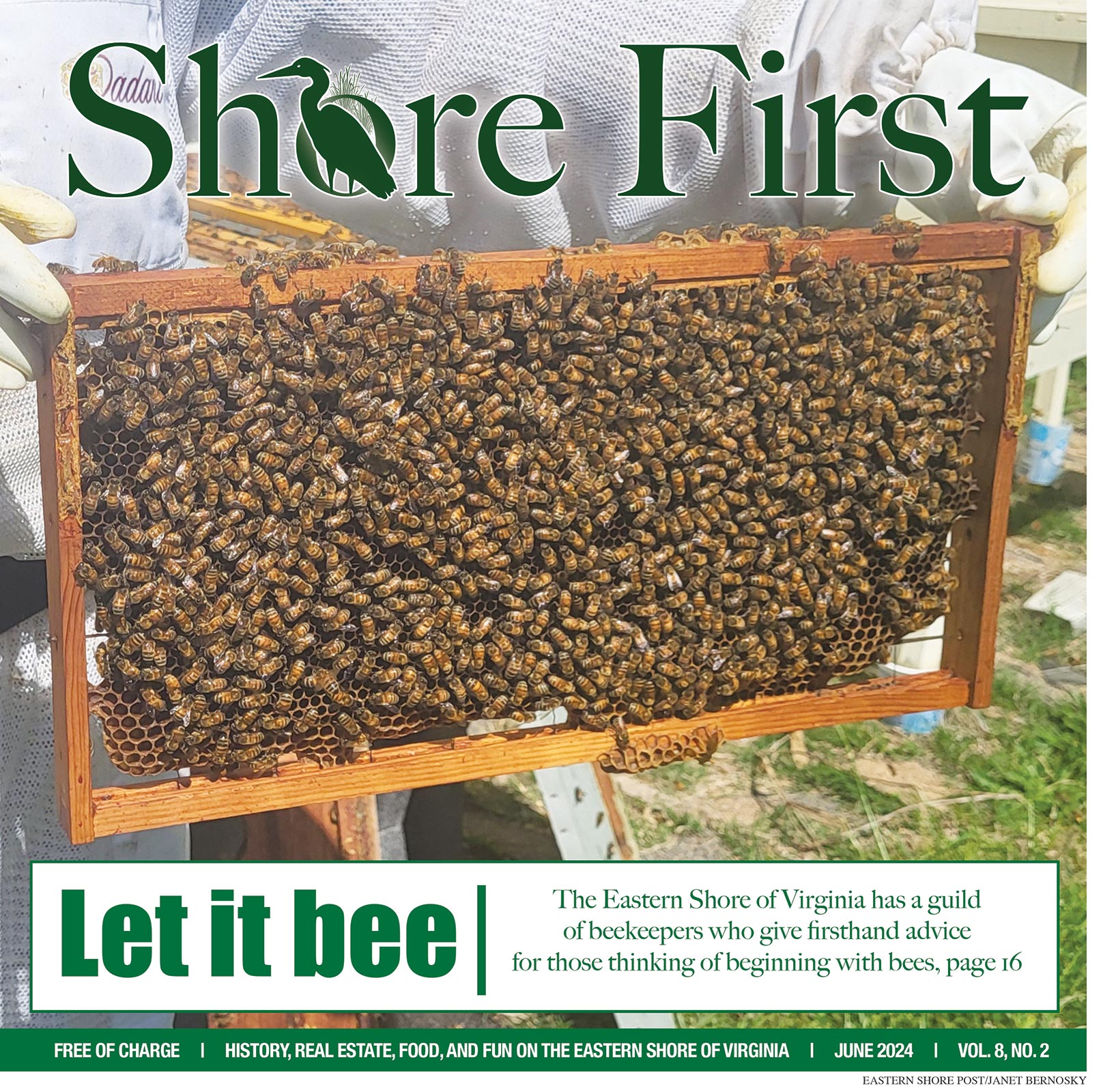BY TED SHOCKLEY, Eastern Shore Post —
Dr. Arthur T. Carter, the former two-term member of the Northampton County Board of Supervisors who walked away from his Nassawadox obstetrics and gynecology practice to dedicate himself fully to creating economic and housing opportunities on the Eastern Shore, died Wednesday, April 5, after a brief illness.
Carter, who had largely stepped back from crowds and the community spotlight to mitigate impacts on his immune system after receiving a heart transplant 21 years ago, was 76 years old.
Carter became a local household name several times over — first as a respected physician, then as an elected official, and then as the president of a grant-funded corporation that helped provide, among other initiatives, small business loans for would-be entrepreneurs with a dream but little else.
But it was his force of character, intellectual nimbleness, and rich personal background — his grandfather was a Northampton County slave who was elected to the House of Delegates after the Civil War — that gave Carter unique community standing.
“He stood firm in what he believed, and that was to help people,” said Jane Cabarrus, the president of the Northampton County Chapter NAACP.
Cabarrus acknowledged, however, that Carter’s advocacy wasn’t universally praised.
“Some saw him as being too forward and outspoken,” she said.
Carter’s election to the board of supervisors in 1992, less than a decade after moving his medical practice to the Eastern Shore from Hampton Roads, was as inspirational to some as it was unsettling to others.
The personal journey of the new leader ran counter to the social norms of a rural, agrarian southern county. Never before or since has an Eastern Shore elected official’s milieu so thoroughly defied convention.
Carter’s wife, an attorney and native of the Boston area, described herself as a “flaming feminist” who instilled a similar point of view in her husband. Theirs was a rare interracial marriage in the county.
Arthur Carter held a bachelor’s degree from highly selective Georgetown University and had no qualms about publicly debating other elected colleagues when he believed policies and thoughts weren’t fair to all.
Carter’s physical presence also conveyed a powerful aura. At a height of 6-foot-5 with a white beard that sometimes grew long, Carter was the focal point in every room he entered.
At Georgetown he was an acclaimed boxer, winning a Golden Gloves amateur title in a match covered in a Washington, D.C., newspaper.
Most rankling to some was that Carter, in the late 1960s, had joined the Republic of New Africa, a Black nationalist group, and in Detroit he became its liaison with the Black Panther Party.
During that time, Carter was the spokesman in Detroit for nine militant Black groups that threatened action against police to end alleged heavy-handed tactics.
Carter embraced the experience. Others were wary of his association with militant Black groups, even years later.
Carter caused a further stir when, as a county supervisor and leader of a group called the Virginia Eastern Shore Economic Empowerment and Housing Corporation, he gave up his medical practice to focus full time on alleviating poverty and creating opportunities.
Critics thought it was suspicious and the rumor mill whirled in high gear.
His widow said the move showed the depth of his conviction.
“Society is so geared toward making the most money you can make,” she said. “They thought it was crazy giving up all that money and income.
“He liked practicing medicine but … his priority was that there be social change.”
‘Make society better’
Carter was born in Franktown on June 26, 1946, to a family that similarly defied convention.
His grandfather, Peter Jacob Carter, was born near Eastville, fought for the Union in the Civil War, and represented Northampton County in the House of Delegates for eight years — the last Black man from the Eastern Shore to be elected to the General Assembly.
A state historical marker near Franktown details his life and work.
Carter’s father was a physician and his mother was a registered nurse with a master’s degree.
“His family was so amazing in their accomplishments,” Marsha Carter said. “They were all geared toward, whatever you did, you had a responsibility to make society better.”
When Carter was 2, his father took a job at a Veteran’s Administration hospital and the family moved to Alabama. Carter attended a Pennsylvania boarding school at age 13 and was a pre-medicine major at Georgetown, where he met his future wife.
He was a college senior; she was a junior who had transferred to the school. She asked him to dance at a social event.
“He could really dance so well,” she said. “I just wanted to dance with someone who knew how to dance.”
They married in 1970 and Carter returned to medical school at the University of Cincinnati. His internship and residency were completed at Eastern Virginia Medical School in Norfolk.
After practicing medicine in Hampton Roads, he returned to the community of his birth in 1983 when the Carters and their two daughters moved to the Eastern Shore.
“He wanted to come back to the Shore, to his roots, to make a difference,” said Cabarrus. “It was just in his blood.”
For most of a dozen years, ending in 2000, it seemed like Carter was everywhere at once — delivering babies, seeing patients, voting on county initiatives as an elected official, and working in community organizing.
When Citizens for a Better Eastern Shore began in the late 1980s, Carter was a vice president of the grassroots group.
He was one of the founders of a Northampton housing group whose 1989 study found 29% of the county’s homes had incomplete plumbing, 25% had structural problems, and 77% of the wells were contaminated with fecal bacteria.
Later, Carter and others founded an economic empowerment and housing group that now calls itself Credence Community Capital.
At the time, the group provided microloans to business startups and worked to improve and create housing stock.
However, it came under fire for backing a number of businesses that failed.
In addition, a shelter for women and children at a former U.S. Route 13 motel in Birdsnest, which the group opened to fanfare, closed after several years, with Carter admitting the initiaive’s failure was due to his group’s lack of experience with such a project.
‘Human struggle’
Carter was a scholar of African American history and lecturer on the trans-Atlantic slave trade. He also became an advocate for all disadvantaged groups and a voice of racial reconciliation.
He was a member of Eastern Mennonite University’s chapter of Coming to the Table, a national initiative to heal racial wounds. The university is near Harrisonburg, Va.
“He so believed in the community and all people, in all groups, having a say — not just the privileged or rich,” his wife said.
She said Carter believed “each human being should be given the opportunities and allowed to rise up and develop their full potential.
“This was a human struggle, not just a Black struggle.”
After recovery from his heart transplant, Carter also was active in a choir called the Multi-Ethnic Eastern Shore Spirituals and Group Ensemble, which included almost 50 singers that performed songs composed by slaves during bondage.
Carter said the songs were codes to escape from slavery and to provide strength and inspiration.
He did not sing with the group, however.
“A frog knows not to croak while angels sing,” he once wrote in a letter to his older daughter.
One of Carter’s last acts of advocacy was three years ago when localities around the state began removing Confederate statues on public grounds.
Carter stood before the board of supervisors on which he once served and proposed a new plan — instead of removing the century-old Confederate soldier statue on Eastville’s courthouse green, he asked that the county add an African American Union soldier statue to the area.
The move would enhance historical understanding instead of erasing it.
“That would show the world that we have a better way,” Carter told supervisors in August 2020.
County leaders were unfazed. A year later, the Confederate statue was removed after a vote by the board of supervisors.




